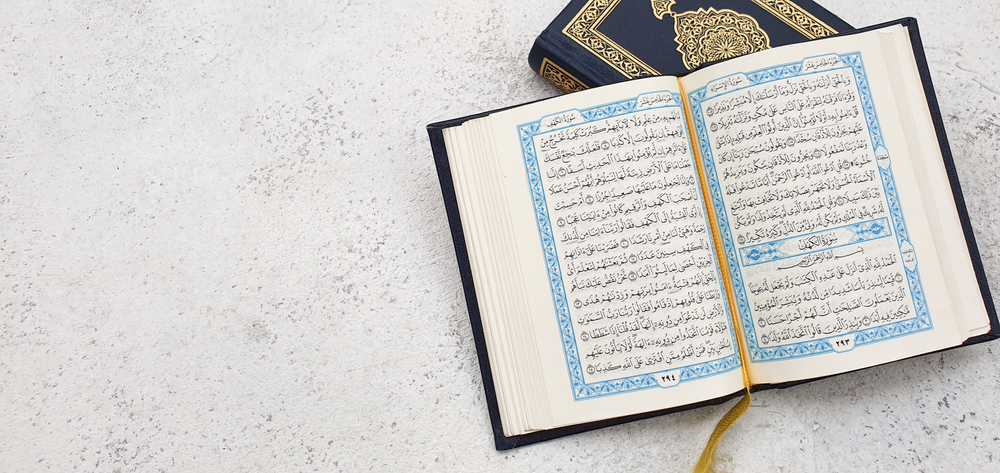Is it Permissible to Publish a Translation of the Quran without the Arabic Text?
Shafi'i Fiqh
Answered by Shaykh Irshaad Sedick
Question
Is it impermissible to print a translation of the Quran without the original Arabic text? Is this true? Does the Shafi‘i School prohibit it?
Answer
In the Name of Allah, the Most Merciful and Compassionate.
May Allah alleviate our difficulties and guide us to that which is pleasing to Him. Amin.
In this regard, a fatwa of this nature was published and signed by many contemporary Hanafi scholars presenting their view as ijma’ (scholarly consensus). This may refer to a general kind of agreement or a consensus within the School, but one must consult the fatwa for further clarification, and Allah knows best.
Check this link:
Is it permissible to publish an English translation of the Qur’an without the Arabic text?
Translations of the Meanings of the Quran
For the preservation of the Quran, it should be continuously published with the original Arabic text. There may be occasions, especially for proselytization purposes, wherein translation-only versions may be helpful, but these should not be called “the Quran.”
A more appropriate term would be “an explanation of the meanings of the Quran” because they are attempts at the exegesis of the Quran, and Allah knows best. Any translation of the meanings of the Quran should clearly explain what it is. [Zarqani, Manahil al-‘Irfan]
The Shafi’i School and the Quran
The Shafi’i School does not regard the translation of the Quran as “the Quran”. The rulings that apply to the Mushaf (the correct word for a copy of the Quran) are not applied to a translation of the Quran or any book in which the entire Quran is printed, but the text that is not Quran is more than the text of the Quran.
Quoting from Mughni Al-Muhtaj, ‘Umdat Al-Salik, and Fayd Al-Ilah Al-Malik, Shaykh Nuh Ha Mim Keller writes:
“It is also unlawful (without ablution) to touch or carry any Quran written for study, even a single verse or part of one, as written on a slate or the like. But this is permissible for non-study purposes, such as when the Quran is intended to be an amulet.
It is not prohibited to touch or carry such an amulet even if it contains whole suras or even, as Shaykh Al-Khatib Al-Shirbini has said, if it contains the whole Quran. It is permissible to carry a Quran in one’s baggage and to carry money, rings, or clothes on which Quran is written.
It is permissible to carry books of Sacred Law, hadith, or Quranic exegesis, which contain the Quran, provided that most of their text is not Quran. This is because the non-Quranic part is the purpose, though this is unlawful if half or more is Quran.” [Reliance of the Traveler]
What Are the Best English Translations of the Quran?
I pray this is of benefit and that Allah guides us all.
[Shaykh] Irshaad Sedick
Checked and Approved by Shaykh Faraz Rabbani
Shaykh Irshaad Sedick was raised in South Africa in a traditional Muslim family. He graduated from Dar al-Ulum al-Arabiyyah al-Islamiyyah in Strand, Western Cape, under the guidance of the late world-renowned scholar, Shaykh Taha Karaan.
Shaykh Irshaad received Ijaza from many luminaries of the Islamic world, including Shaykh Taha Karaan, Mawlana Yusuf Karaan, and Mawlana Abdul Hafeez Makki, among others.
He is the author of the text “The Musnad of Ahmad ibn Hanbal: A Hujjah or not?” He has served as the Director of the Discover Islam Centre and Al Jeem Foundation. For the last five years till present, he has served as the Khatib of Masjid Ar-Rashideen, Mowbray, Cape Town.
Shaykh Irshaad has thirteen years of teaching experience at some of the leading Islamic institutes in Cape Town). He is currently building an Islamic online learning and media platform called ‘Isnad Academy’ and has completed his Master’s degree in the study of Islam at the University of Johannesburg. He has a keen interest in healthy living and fitness.
